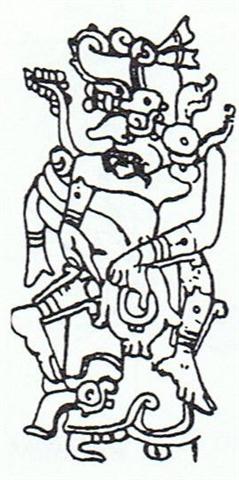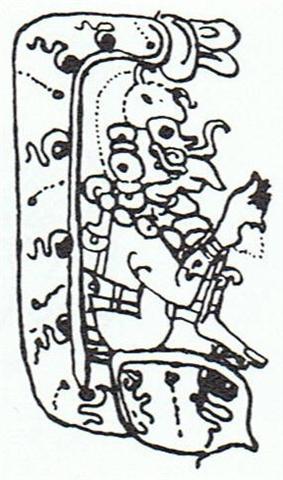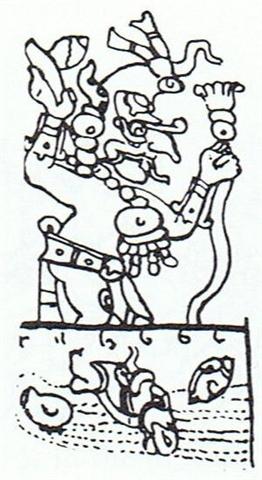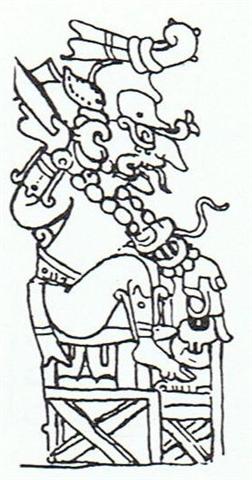Ba6.6
Thus a new 'year' could evidently have begun when the Full Moon
was observed at the right ascension line of Φ Sagittarii,
from which fact it could be deduced the Sun was at Sirius in June 30. What
would happen after that?
... The Celtic year was divided into two halves with the second
half beginning in July, apparently after a seven-day wake, or
funeral feast, in the oak-king's honour ...
|
 |
 |
 |
 |
 |
 |
 |
|
Solstice |
June 22 |
23 |
Baptist |
25 |
26 (177) |
27 |
|
Solstice |
Dec 22 |
23 |
X-mas Eve |
25 |
26 (360) |
Vega |
|
 |
 |
 |
|
June 28 |
Mebsuta |
Sirius |
|
Dec 28 |
29 |
30 (364) |
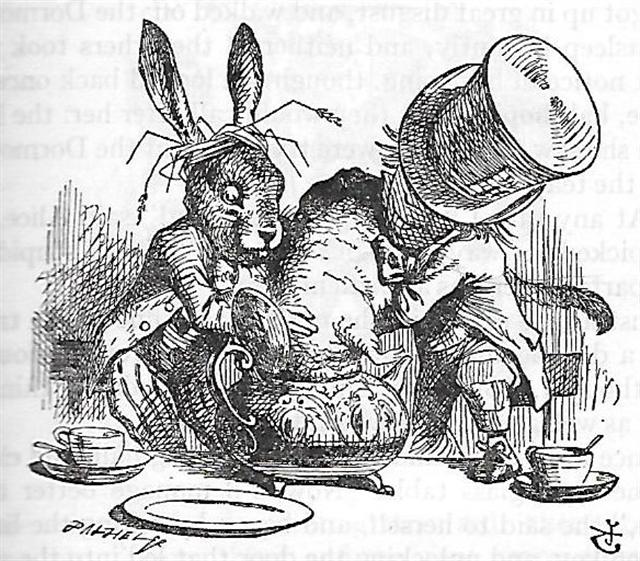

To repeat:
 |
 |
 |
|
Ba6-1 |
Ba6-2 |
Ba6-3 (210 = 284 - 74) |
|
Kua huki |
ko Toia |
kua
vaha mea
ïa |
|
To'i. T. Stone adze (e
to'i purepure = with the wounderful adze).
Henry. Toki. Month of the ancient Rapanui
calendar. Fedorova according to Fischer.
Vaha. Hollow; opening; space between the
fingers (vaha rima); door cracks (vaha
papare). Vahavaha, to fight, to wrangle,
to argue with abusive words. Vanaga. 1. Space,
before T; vaha takitua, perineum. PS Mgv.:
vaha, a space, an open place. Mq.: vaha,
separated, not joined. Ta.: vaha, an opening.
Sa.: vasa, space, interval. To.: vaha,
vahaa, id. Fu.: vasa, vāsaà,
id. Niuē: vahā.
2. Muscle, tendon; vahavaha,
id. Vahahora
(vaha 1 -
hora 2),
spring. Vahatoga
(vaha 1 -
toga 1),
autumn. 3. Ta.: vahavaha,
to disdain, to dislike. Ha.: wahawaha,
to hate, to dislike. Churchill.
... If the old calendar year had been
Outstretched (Mebsuta) by 3 days from Vega to
December 30 (364), then the new year must have been
similarly Contracted (Mekbuda) by 3 days - no
longer beginning at the very ancient star at the
north pole but 3 days later.
... Vainamoinen set about building a boat, but when
it came to the prow and the stern, he found he
needed three words in his rune that he did not know,
however he sought for them ... |
|
No star listed (282) |
ζ
Pavonis (283.4),
λ
Cor. Austr. (283.6),
DOUBLE DOUBLE =
ε
Lyrae
(283.7),
ζ
Lyrae (283.8)
*242.0 = *283.4 - *41.4 |
South Dipper-8 (Unicorn)
Φ
Sagittarii (284.0),
μ
Cor. Austr. (284.6),
η
Cor. Austr.,
θ
Pavonis (284.8) |
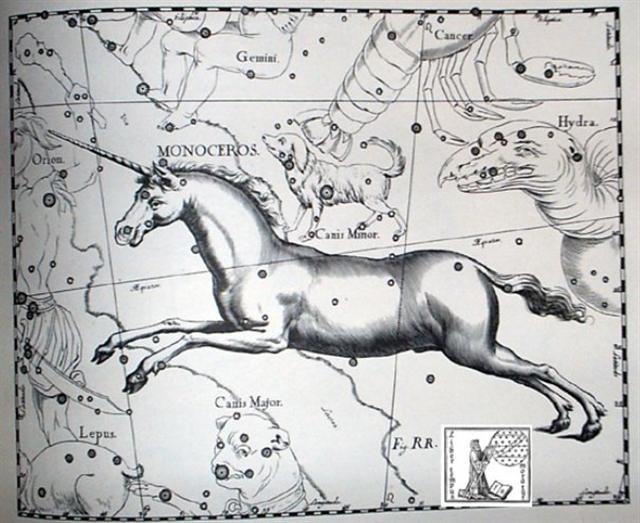 |
|
Dec 28 |
29 |
30 (364) |
|
June 28 |
29 (180) |
30 (364 - 183) |
|
ν Puppis (99.2),
ψ3 Aurigae (99.4),
ψ2 Aurigae (99.5)
*58.0 = *99.4 - *41.4
GEMMA (α Cor. Bor.) |
ψ4 Aurigae (100.5),
MEBSUTA (Outstretched) = ε Gemini
(100.7) |
SIRIUS = α Canis Majoris
(101.2),
ψ5 Aurigae (101.4),
ν Gemini (101.6), ψ6 Aurigae (101.7)
*60.0 = *101.4 - *41.4 |
|
... In other words, the ancient
Druidic religion based on the
oak-cult will be swept away by
Christianity and the door - the god
Llyr - will languish forgotten in
the Castle of Arianrhod, the
Corona Borealis. This helps us
to understand the relationship at
Rome of Janus and the White Goddess
Cardea who is ... the Goddess of
Hinges who came to Rome from Alba
Longa. She was the hinge on which
the year swung - the ancient Latin,
not the Etruscan year - and her
importance as such is recorded in
the Latin adjective cardinalis
- as we say in English 'of cardinal
importance - which was also applied
to the four main winds; for winds
were considered as under the sole
direction of the Great Goddess until
Classical times .. |
|
... In the Chinese map over the
significant stars marking the path
of the Sun there was a Grey Tiger
stretching out (cfr Mebsuta,
Outstretched,
ε
Gemini, *100) his Right Front Paw
towards the Right Wing of the Red
Summer Bird. The head of this Tiger
was at Orion and the beak of this
Bird was at Gemini:
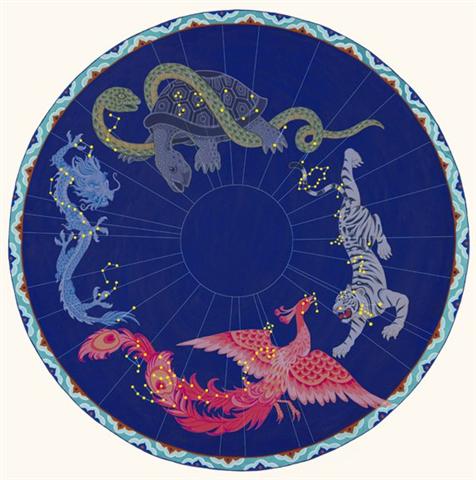 |
 |
 |
 |
15 + 3
|
 |
|
Ba5-25 (190) |
Ba5-26 (*74 +
*191) |
Ba5-27 (*266) |
Ba6-3 (210 →
*284) |
|
June 9 |
10 (161 → φ) |
11 |
June 30 (181) |
|
ELNATH |
LESATH |
SHAULA |
Φ Sagittarii |
|
mai tae tuki te
togavaha |
kua huri te hatu |
mai tae oho te manu rere |
kua vaha
mea ïa |
|
Huri. 1. To turn
(vt.), to overthrow, to knock down:
huri moai, the overthrowing of the statues from
their ahus during the period of decadence on
the island. 2. To pour a liquid from a
container: ka huri mai te vai, pour me some
water.
.jpg)
.jpg)
Huri. 1. To turn
(vt.), to overthrow, to knock down:
huri moai, the overthrowing of the statues from
their ahus during the period of decadence on
the island. 2. To pour a liquid from a
container: ka huri mai te vai, pour me some
water. 3. To end a lament, a
mourning: he huri i te tagi, ina ekó tagi hakaou,
with this the mourning (for the deceased) is over,
there shall be no more crying. 4. New shoot
of banana: huri maîka. Vanaga. 1. Stem. P
Mgv.: huri, a banana shoot. Mq.: hui,
shoot, scion. 2. To turn over, to be turned over
onto another side, to bend, to lean, to warp;
huri ke, to change, to decant; tae huri ke,
invariable; huri ke tahaga no mai, to change
as the wind; tae huri, immovable; e ko
huri ke, infallible; huhuri, rolling;
hakahuri, to turn over; hakahuri ke, to
divine. P Pau.: huri, to turn. Mgv.: huri,
uri, to turn on one side, to roll, to turn
upside down, to reverse. Mq.: hui, to turn,
to reverse. 3. To throw, to shoot. 4. To water, to
wet. 5. To hollow out. Hurihuri: 1. Wrath,
anger; kokoma hurihuri, animosity, spite,
wrath, fury, hate, enmity, irritable, quick
tempered, to feel offended, to resent, to pester;
kokoma hurihuri ke, to be in a rage. 2. (huri
4) hurihuri titi, to fill up. 3. To polish.
4. (uriuri). Hurikea, to transfigure,
to transform. Churchill. Mq. huri,
resemblance. Sa.: foliga, to resemble.
Churchill. |
Metoro said this place was at vaha mea ïa, and the word ïa
ought to be discussed. Looking back in the text we will find his
ïa mentioned at these glyphs:
 |
1 |
 |
6 |
 |
10 |
 |
61 |
 |
111 |
 |
|
Ba1-16 |
Ba1-18 |
Ba1-25 |
Ba1-36 |
Ba3-11 (98) |
Ba6-3 |
|
*90 |
20 |
173 |
June 30 |
However, we must come back to this problem later.
Instead, let us here and now continue to expand our slowly growing star map:
 |
 |
 |
 |
|
... a drastic change was in the rongorongo idiom evidently
expressed by a mirror image,
|
 |
 |
*93 |
 |
|
KHAMBALIA
|
TOLIMAN |
ALBALI |
|
*216 |
*221 |
*314 |
|
|
Ba6-7 (214 = 288 -
74) |
Ba6-8
→
65 + 3 |
Ba6-9 |
Ba6-10 |
| ka huri te
hatu |
e tagata huri |
hatu |
e tagata haga |
|
Hatu. 1. Clod of earth;
cultivated land; arable land (oone hatu). 2.
Compact mass of other substances: hatu matá,
piece of obsidian. 3. Figuratively: manava hatu,
said of persons who, in adversity, stay composed and in
control of their behaviour and feelings. 4. To advise,
to command. He hatu i te vanaga rivariva ki te kio o
poki ki ruga ki te opata, they gave the refugees the
good advice not to climb the precipice; he hatu i te
vanaga rakerake, to give bad advice. 5. To collude,
to unite for a purpose, to concur. Mo hatu o te tia o
te nua, to agree on the price of a nua cape.
6. Result, favourable outcome of an enterprise. He ká
i te umu mo te hatu o te aga, to light the earth
oven for the successful outcome of an enterprise.
Vanaga. 1. Haatu, hahatu, mahatu.
To fold, to double, to plait, to braid; noho hatu,
to sit crosslegged; hoe hatu, clasp knife;
hatuhatu, to deform. 2. To recommend. Churchill. In
the Polynesian dialects proper, we find Patu and
Patu-patu, 'stone', in New Zealand; Fatu
in Tahiti and Marquesas signifying 'Lord', 'Master',
also 'Stone'; Haku in the Hawaiian means 'Lord',
'Master', while with the intensitive prefix Po it
becomes Pohaku, 'a stone'. Fornander. |
|
Al
Na'ām-18 (Ostriches) /
Uttara Ashadha-21 (Elephant tusk, small bed)
NUNKI = σ Sagittarii (288.4), ζ Cor. Austr. (288.5),
MANUBRIUM = ο
Sagittarii
(288.8), ζ Aquilae (288.9)
*247.0 = *288.4 - *41.4 |
19h (289.2)
λ
Aquilae (Ant.) (289.1),
γ
Cor. Austr (289.3),
TILLIE
= τ
Sagittarii (289.4),
ι
Lyrae (289.5),
δ
Cor.
Austr. (289.8)
*248.0 = *289.4 - *41.4 |
Al
Baldah-19 (City)
AL BALDAH = π Sagittarii,
ALPHEKKA (Dish) MERIDIANA = α Cor. Austr.
(290.1), β Cor. Austr. (290.2) |
ALADFAR
(The Talons) = η Lyrae
(291.1),
NODUS II = δ Draconis
(291.5), ψ Sagittarii (291.6), τ Draconis (291.7), θ
Lyrae (291.8) |
|
... This [σ
Sagittarii] has been identified with Nunki of the
Euphratean Tablet of the Thirty Stars, the Star
of the Proclamation of the Sea, this Sea being
the quarter occupied by Aquarius, Capricornus,
Delphinus, Pisces, and Pisces Australis. It is the same
space in the sky that Aratos designated as Water
...
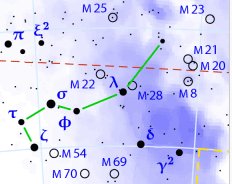 |
|
Jan 3 |
4 =
1 + 3 |
5 |
6 (371 = 80 + 291)
|
|
ω
Gemini (105.4), ALZIRR (Button) =
ξ
Gemini
(105.7),
MULIPHEIN (Oaths) =
γ
Canis Majoris
(105.8),
MEKBUDA (Contracted) =
ζ
Gemini
(105.9)
*64.0 = *105.4 - *41.4 |
7h (106.5)
No star listed (106) |
WEZEN (Weight) =
δ
Canis Majoris
(107.1),
τ
Gemini (107.7),
δ
Monocerotis (107.9) |
No star listed (108) |
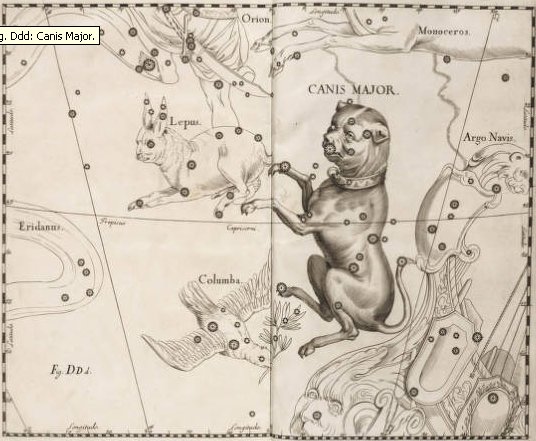 |
|
July 4 (185) |
5 (366 + 3 - 183) |
6 |
7 |
Beyond the suggested 7 day wake, presumably to be counted from
July 1 after heliacal Sirius, we should arrive at the first
true calendar day of the 2nd half of the year, and here indeed there
is a very special glyph:
|
 |
 |
|
pare |
Ba6-11 |
 |
 |
 |
 |
|
Ba6-11 |
Ba6-12 |
Ba6-13 (220) |
Ba6-14 (295 -
74) |
|
i to pare |
ko te tagata mai tae rere -
ki to toki |
te tara huki kua huki |
ki te toki - e kua tuu i te
toga |
|
Pare.
Half raw, badly cooked. Parehaoga,
food prepared in the earth oven (umu
parehaoga) for a feast or for people whose
help is needed for some work or for organizing a
feast. Parehe, piece, bit; to fall, break
into pieces. Parei, dirty, to have a
dirty face and eyes, someone who gets up without
washing. Parera, sea bottom. Vanaga. Ta.:
Pare, a fort, a place of refuge. Ma.:
parepare, a breastwork in a stockade. Mgv.:
Pare, a covering for the head. Mq.:
pae, id. Sa.: pale, id. Ma.: pare,
id. Churchill. Parehe, to break, a crack.
Parei, 1. (paré), dressed up. 2. To
sparkle (of the eyes). Parera, 1. A
shallow, a reef. 2. Deep water, profound, gulf;
parera tai, deep sea; tai parera,
high tide; hohonu parera, fathomless,
unsoundable. 3. To lead astray. Hakaparera,
to frighten, to scare. Pareu, skirt,
apron. Mgv., Mq., Ta.: pareu, loincloth,
apron. Pau.: Parego, to drown oneself.
Ta.: paremo, drowned. Ma.: paremo,
id.
To. 1. Particle sometimes used with
the article in ancient legends; i uto to te
hau, the ribbon was in the float. 2. To rise
(of the sun) during the morning hours up to the
zenith: he-to te raá. Vanaga. 1. Of. T
Pau., Ta.: to, of. Mgv.: to,
genitive sign. Mq.: to, of, for. 2. This,
which. Churchill. Mgv.:
To, to make a canoe of planks. Mq.: to,
to build a canoe. Sa.: to, to build.
Churchill.
... If
the old calendar year had been Outstretched
(Mebsuta) by 3 days from Vega to December 30
(364), then the new year must have been
similarly Contracted (Mekbuda) by 3 days
- no longer beginning at the very ancient star
at the north pole but 3 days later.
... Vainamoinen set about building a boat, but
when it came to the prow and the stern, he found
he needed three words in his rune that he did
not know, however he sought for them ... |
|
ω Aquilae (292.1), ρ Sagittarii (292.6), υ
Sagittarii (292.7) |
Π Draconis,
ARKAB PRIOR = β¹ Sagittarii
(293.0),
ARKAB POSTERIOR = β² Sagittarii,
ALRAMI (The Archer) = α Sagittarii
(293.2), χ Sagittarii (293.6) |
DENEB OKAB (Tail of the Eagle) =
δ
Aquilae (Ant.)
(294.0),
α VULPECULAE (Little Fox)
(294.9) |
ν
Aquilae (Ant.) (295.0),
ALBIREO - Hen's Beak =
β
Cygni
(295.5) |
|
Jan 7 (3 + 369) |
8 |
9 |
10 |
|
λ Gemini (109.4),
WASAT (Middle) = δ Gemini
(109.8)
*68.0 = *109.4 - *41.4 |
No star listed (110) |
ALUDRA (Virgin) =
η
Canis Majoris
(111.1),
PROPUS
= ι Gemini (111.4),
GOMEISA
(Water-eyed) = β Canis Minoris
(111.6)
*70.0 = *111.4 - *41.4 |
ρ
Gemini (?)
(112.1),
Eskimo
Nebula = NGC2392 Gemini
(112.2)
ANTARES (α Scorpii) |
|
July 8 (3 + 186) |
9 |
10 (191) |
11 |
|
...
Originally the highly born family of the Sun,
Moon, and stars dwelt in a cave on the summit of
Maunga-nui, Great Mountain, in the
ancient homeland. They were not at all
comfortable in their gloomy home for they could
not see distinctly and their eyes watered
constantly. After the Sky-father had been
elevated to his present eminence Tane
decided that the celestial family would be
happier in the sky, where they would serve the
double purpose of ornamenting the naked body of
Rangi and giving light to the
Earth-mother. Since Papa had already been
turned with her face toward the Underworld it is
difficult to see how she would benefit by the
illumination ... |
... They go inland at the land. The
child nursed and tended grows up, is able to go and
play. Each day he now goes off a bit further away,
moving some distance away from the house, and then
returns to their house. So it goes on and the child is
fully grown and goes to play far away from the place
where they live. He goes over to where some work is
being done by a father and son. Likāvaka is the
name of the father - a canoe-builder, while his son is
Kiukava.
Taetagaloa
goes right over there and steps forward to the stern of
the canoe saying - his words are these: 'The canoe is
crooked.' (kalo ki ama).
Instantly Likāvaka is enraged
at the words of the child. Likāvaka says: 'Who
the hell are you to come and tell me that the canoe is
crooked?' Taetagaloa
replies: 'Come and stand over here and see that the
canoe is crooked.' Likāvaka goes over and stands
right at the place Taetagaloa told him to at the
stern of the canoe. Looking forward, Taetagaloa
is right, the canoe is crooked. He slices through all
the lashings of the canoe to straighten the timbers. He
realigns the timbers. First he must again position the
supports, then place the timbers correctly in them, but
Kuikava the son of Likāvaka goes over and
stands upon one support. His father Likāvaka
rushes right over and strikes his son Kuikava
with his adze. Thus Kuikava dies.
Taetagaloa
goes over at once and brings the son of Likāvaka,
Kuikava, back to life. Then he again aligns the
supports correctly and helps Likāvaka in building
the canoe. Working working it is finished
...
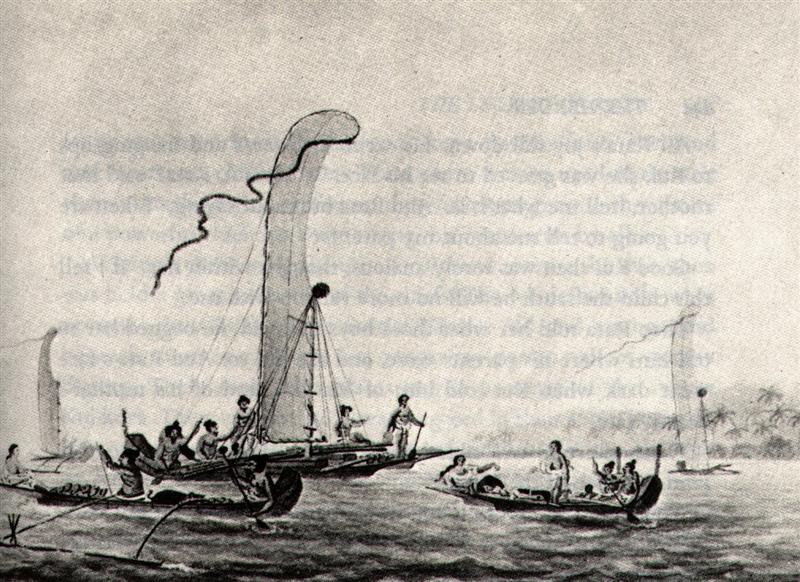
 |
 |
 |
 |
 |
|
Ba6-15 |
Ba6-16 |
Ba6-17 |
(225
→
Aug 13) |
Ba6-19
(300 - 74) |
|
mai tae rere
hia ki te toki |
e haga tara
hia mai tae
rere |
te toki |
e ihe |
kite toki - kua amo
hia ki te henua |
|
Amo. To carry on
one's shoulders: O Yetú i-amo-ai te
tatauró ki ruga ki-te maúga Kalvario.
Jesus carried his cross up to the Calvary.
Amoga, bundle; to tie in a bundle:
he-amoga i te hukahuka, to tie a bundle
of wood. Vanaga. 1. A yoke, to carry;
amoga, burden, load. 2. To bend, to
beat a path. Churchill. Âmo. 1. To
clean, to clean oneself: he-âmo i te umu,
to clean the earth oven; ka-âmo te
hare, ka haka-maitaki, clean the house,
make it good; he-âmo i te ariga, to
clean one's face wetting it with one's hand.
2. Clear; ku-âmo-á te ragi, the sky
is clear. 3. To slip, to slide, to glide
(see pei-âmo). Ámoámo, to lick
up, to lap up, to dry; to slap one's body
dry (after swimming or bathing):
he-âmoâmo i te vaihai rima.
Vanaga. Amoamo. 1. To feed, to graze.
2. To spread, to stretch (used of keete).
Churchill. |
|
ALSAFI (Fire Tripod) =
σ
Draconis
(296.0),
μ
Aquilae (296.3),
ι
Aquilae (Ant.)
(296.8), κ Aquilae (Ant.) (296.9) |
ε Sagittae (297.1),
σ Aquilae (Ant.) (297.4),
SHAM (Arrow) = α Sagittae
(297.8)
*256.0 = *297.4 - *41.4 |
β Sagittae (298.0), χ Aquilae (298.3), ψ
Aquilae (298.8) |
υ Aquilae (299.1),
TARAZED (Star-striking Falcon) = γ Aquilae
(299.3), δ Sagittae (299.6), π Aquilae
(299.9) |
Sravana-23
(Ear or Three Footprints)
TYL =
ε
Draconis
(300.0),
ζ
Sagittae (300.1),
ALTAIR (Flying Eagle) =
α
Aquilae
(300.3),
ο
Aquilae (300.5),
BEZEK =
η
Aquilae (Ant.)
(300.8) |
 |
|
Jan 11 |
12 (377) |
378 (→
Saturn) |
14 |
15 |
|
NOV 8 |
9 |
10
(314 = 378 - 64) |
11 |
12 |
|
Al Dhirā'-5 (Forearm) /
Punarvasu-7 (The Two Restorers of Goods) /
Mash-mashu-Mahrū-10 (Western One of the
Twins)
CASTOR (Beaver) = α Gemini (113.4)
*113.4 = *41.4 + *72.0 |
ANA-TAHUA-VAHINE-O-TOA-TE-MANAVA-7 (Pillar
for Elocution)
υ Gemini (114.0),
MARKAB PUPPIS = κ Puppis
(114.7), ο Gemini (114.8),
PROCYON = α Canis Minoris
(114.9) |
α
Monocerotis (115.4), σ Gemini (115.7)
*74.0 = *115.4 - *41.4 |
Mash-mashu-arkū-11 (Eastern One of the
Twins)
κ Gemini (116.1),
POLLUX = β Gemini
(116.2), π Gemini (116.9) |
AZMIDISKE (Little Shield) =
ξ
Puppis
(117.4)
*76.0 = *117.4 - *41.4 |
|
July 12 |
13 |
14
(195 = 378 - 183) |
15 |
16 |
|
MAY 11 |
12 |
13
(131 = 195 - 64) |
14 |
15 |
 |
When a King reaches a certain old age he has to
abdicate (topa) in
order to invigorate his newborn (hanau) successor:
...
When the man, Ulu, returned to his wife from
his visit to the temple at Puueo, he said, 'I
have heard the voice of the noble Mo'o, and
he has told me that tonight, as soon as darkness
draws over the sea and the fires of the volcano
goddess, Pele, light the clouds over the
crater of Mount
Kilauea, the black cloth will cover my head. And
when the breath has gone from my body and my spirit
has departed to the realms of the dead, you are to
bury my head carefully near our spring of running
water. Plant my heart and entrails near the door of
the house. My feet, legs, and arms, hide in the same
manner. Then lie down upon the couch where the two
of us have reposed so often, listen carefully
throughout the night, and do not go forth before the
sun has reddened the morning sky. If, in the silence
of the night, you should hear noises as of falling
leaves and flowers, and afterward as of heavy fruit
dropping to the ground, you will know that my prayer
has been granted: the life of our little boy will be
saved.' And having said that, Ulu fell on his
face and died.
His wife sang a dirge of
lament, but did precisely as she was told, and in
the morning she found her house surrounded by a
perfect thicket of vegetation. 'Before the door,' we
are told in Thomas Thrum's rendition of the legend,
'on the very spot where she had buried her husband's
heart, there grew a stately tree covered over with
broad, green leaves dripping with dew and shining in
the early sunlight, while on the grass lay the ripe,
round fruit, where it had fallen from the branches
above. And this tree she called Ulu
(breadfruit) in honor of her husband. The little
spring was concealed by a succulent growth of
strange plants, bearing gigantic leaves and pendant
clusters of long yellow fruit, which she named
bananas. The intervening space was filled with a
luxuriant growth of slender stems and twining vines,
of which she called the former sugar-cane and the
latter yams; while all around the house were growing
little shrubs and esculent roots, to each one of
which she gave an appropriate name. Then summoning
her little boy, she bade him gather the breadfruit
and bananas, and, reserving the largest and best for
the gods, roasted the remainder in the hot coals,
telling him that in the future this should be his
food. With the first mouthful, health returned to
the body of the child, and from that time he grew in
strength and stature until he attained to the
fullness of perfect manhood.
He became a mighty warrior in those days, and was
known throughout all the island, so that when he
died, his name, Mokuola, was given to the
islet in the bay of Hilo where his bones were
buried; by which name it is called even to the
present time ...
 |
 |
 |
 |
|
ku hanau ïa mai tae tuki te henua |
o te tagata - mai tae
topa te kovare |
Ba3-13 (100) |
Ba3-14
→
π |
|
MARCH 12 |
13 |
14 |
15 |
|
*313.0 = *354.4 - *41.4 |
*355 = March 11 |
March
12 |
13 |
... In the second century Roman Empire, a belief
that the death of one could rejuvenate the
health of another was widespread, and Hadrian
had been ill for many years; in this scenario,
Antinous could have
sacrificed himself in the belief that Hadrian
would have recovered. Alternately, in Egyptian
tradition it was held that sacrifices of boys to
the Nile, particularly at the time of the
October Osiris festival, would ensure that the
River would flood to its full capacity and thus
fertilize the valley; this was made all the more
urgent as the Nile's floods had been
insufficient for full agricultural production in
both 129 and 130. In this situation, Hadrian
might not have revealed the cause of Antinous's
death because he did not wish to appear either
physically or politically weak. Conversely,
opposing this possibility is the fact that
Hadrian disliked human sacrifice and had
strengthened laws against it in the Empire ...
|











.jpg)
.jpg)

















